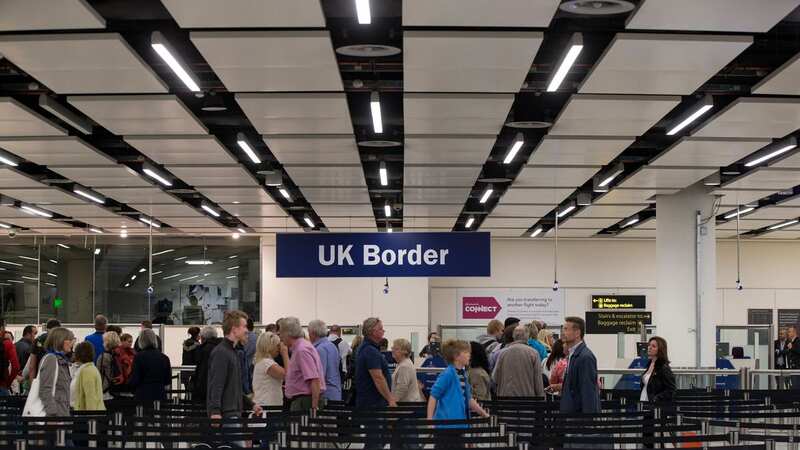UK net migration 'unlikely to fall below pre-Brexit levels' despite Tory pledges
Net migration to the UK is unlikely to fall below pre-Brexit levels by the end of the decade, according to experts.
Estimates from the Migration Observatory at Oxford University and the London School of Economics (LSE) suggest around 250,000 to 350,000 more people will arrive than depart a year by 2030. But figures are expected to drop sharply from the record high of 606,000 last year, fuelled by people fleeing the war in Ukraine and arriving from Hong Kong under resettlement schemes.
The study finds that predictions of lower net migration levels following Brexit are unlikely to happen - largely due to a significant increase in work visas. Rishi Sunak was forced to deny he'd lost control of rising migration but said numbers were “too high” earlier this year amid a backlash from Tory MPs over Brexit commitments to take back control of Britain's borders. Conservative-led Governments have been promising to reduce the numbers for more than a decade.
The latest forecast, based on migration trends and official data, suggests that high levels of immigration over the last two years may lead to more people leaving between 2023 and 2025. That would largely be driven by international students, while smaller numbers of people coming from Ukraine and Hong Kong.
LSE Professor Alan Manning, who co-authored the report, said: "Nobody can predict exactly what will happen to net migration, but we can set out some realistic scenarios. And most plausible scenarios involve net migration falling in the coming years.
 Teachers, civil servants and train drivers walk out in biggest strike in decade
Teachers, civil servants and train drivers walk out in biggest strike in decade
"But many different factors affect the outlook, including what share of international students switch to long-term work visas, whether work visa numbers continue to increase as sharply as they have done in the past few years, and what happens to asylum applications. The unpredictability means it's very hard for policymakers to guarantee that they will deliver a specific level of net migration."
Madeleine Sumption, director of the Migration Observatory, said that health and care visas were helping to keep the figures high. "One of the striking findings is that if current trends continue, work visas look set to be the largest factor shaping overall net migration by some distance. Work-related migration has mostly been driven by health and care," she said. So future migration patterns will be particularly sensitive to developments in that sector."
A Home Office spokesperson said: “The government remains committed to reducing overall net migration. In May we took action to reduce migration by removing the right for most international students to bring family members, while continuing to benefit from the skills and resources our economy needs.
“We will continue to strike the right balance between supporting the UK economy and protecting resident workers through our points-based system, upholding our commitment to reduce migration over time."
Read more similar news:
Comments:
comments powered by Disqus


































